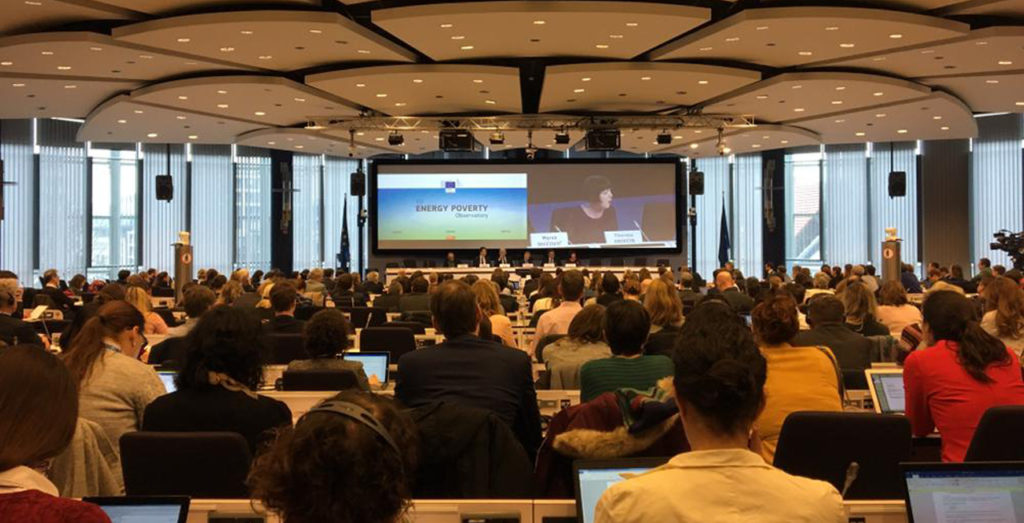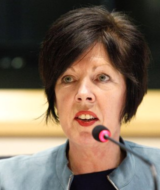Warming reforms
Steps are being taken to tackle energy poverty across Europe and the UK must play an active role, now and post-Brexit, writes Theresa Griffin.
Energy poverty is one of the great challenges of our times. When the Beveridge report was released, it contained proposals to tackle five giant evils including ‘squalor’ and ‘want’ – and those evils sprung from living in unsuitable housing and without sufficient means to heat those homes. The need to tackle these evils is as clear today as it was in 1942: the European Commission estimates that nearly 11 per cent of its citizens – more than 54 million people – live in energy poverty. The true figure is potentially much higher than this.
That is why I was proud to attend and speak at the launch of the EU Energy Poverty Observatory a little earlier this year. The observatory is a chance to not only monitor levels of energy poverty, but to analyse the strategies EU member states are adopting to deal with this issue and make policy proposals on how to eliminate this ‘evil’ for good.
Perhaps the most significant step is something I have been pushing for in the European parliament for months – working towards an agreed definition of energy poverty. There has been considerable pushback from the political right in the European institutions on this, but I believe it is one of the keys to tackling the issue. How can you find the answer when you don’t even know the extent of the problem?
 The creation of the Energy Poverty Observatory was timely, because it coincided with the largest and most ambitious package of energy measures the EU has ever attempted to pass into legislation. The measures are currently going through a process of ‘trilogues’, where the European parliament, commission and council negotiate over what exactly will be in the final bill. I’ve been actively involved in this process as the shadow rapporteur for the Socialists and Democrats group in the European parliament (of which the Labour party is a member) tasked with ensuring our shared progressive values were at the heart of the parliament’s final proposals going into trilogues.
The creation of the Energy Poverty Observatory was timely, because it coincided with the largest and most ambitious package of energy measures the EU has ever attempted to pass into legislation. The measures are currently going through a process of ‘trilogues’, where the European parliament, commission and council negotiate over what exactly will be in the final bill. I’ve been actively involved in this process as the shadow rapporteur for the Socialists and Democrats group in the European parliament (of which the Labour party is a member) tasked with ensuring our shared progressive values were at the heart of the parliament’s final proposals going into trilogues.
The key principles for me were quite simple:
- Reform the energy market so that vulnerable consumers are not disadvantaged by a system designed to cater to active consumers.
- Put energy efficiency at the centre of energy policy – because the most efficient fuel is the fuel that never needs to be used in the first place.
- An acceptance that support for renewable energy is not in contradiction with lowering energy costs, but rather the only way of sustaining cost-effective energy into the future, while understanding that environmental damage hurts the poorest most.
- That support and additional funding is needed for regions with a high dependency on fossil fuels or the fossil fuel industry, to reskill those communities and ensure a ‘just transition’.
- Ensure that no matter what proposal is put forward, the needs of our poorest and most vulnerable citizens are always at the forefront of our thinking.
With these principles in mind, we won most of our proposals in the parliament and emerged from plenary with a 35 per cent renewable energy target and a 35 per cent energy efficiency target across the EU. It is my hope that these will be seen as ‘bare minimum’ figures and emerge either unscathed or improved from the final trilogues.
Here in the UK, the government has recently announced plans to legislate so that 11 million customers will automatically be on the most cost-effective tariff for them. This is a welcome proposal but shows just how skewed our energy market is. It is vital the UK ensures that energy providers are required to put vulnerable customers first, with a guarantee that there will be no disconnections, that customers will be automatically registered for the cheapest tariff and that there will be an end to doorstop pressure-selling and far clearer tariff-pricing.
The EU is leading the way on this with the current legislation – so the UK government must now guarantee that British citizens aren’t left behind, by defending consumer interests in the trilogue negotiations, by not alienating our allies during their inept Brexit negotiations and by ensuring that even after Brexit, the measures set out in this legislation are fully implemented in the UK.

